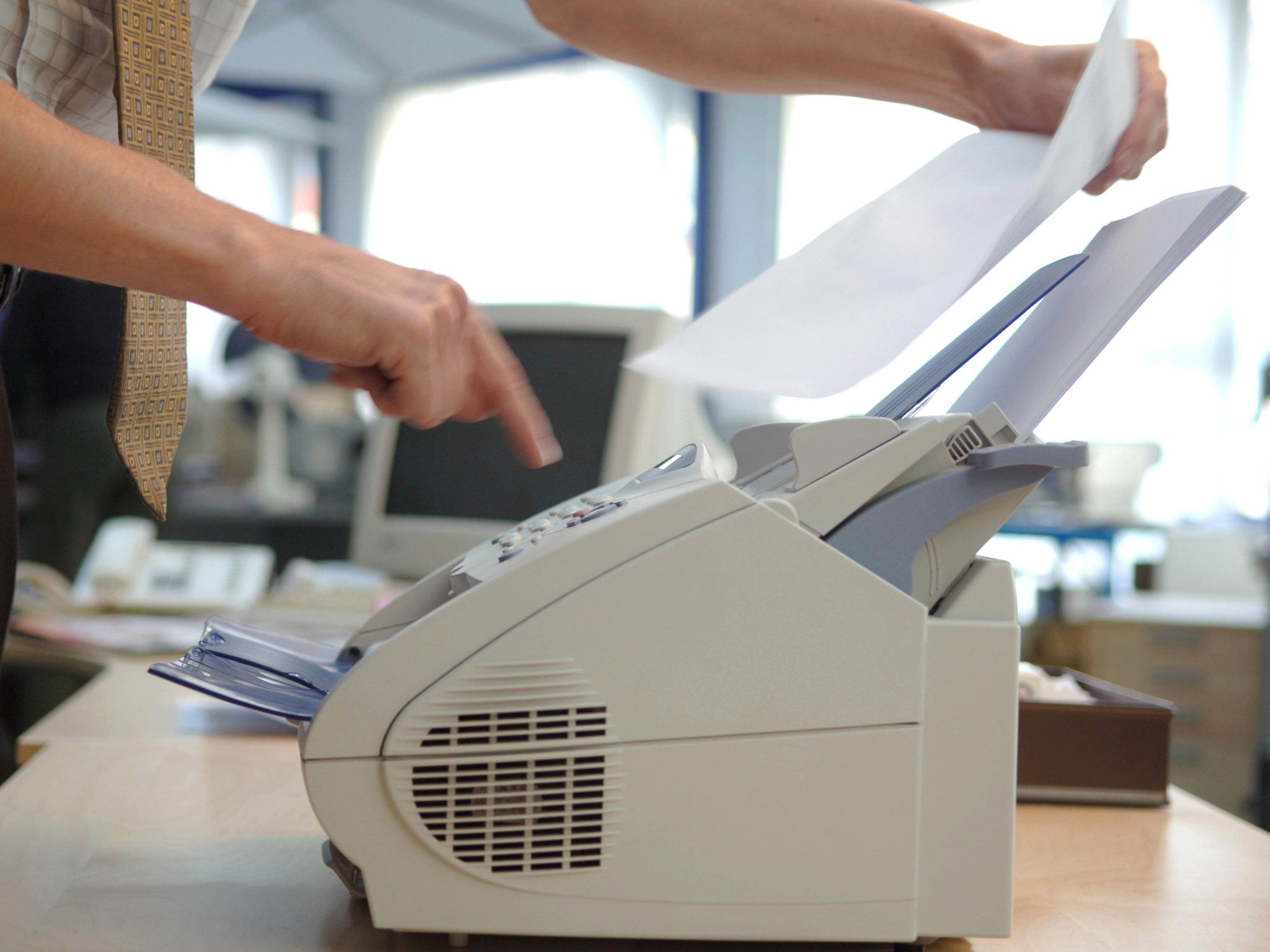NHS 'stubbornly attached' to fax machines with trusts holding onto thousands of outdated devices
Health service told to stop relying on 'archaic' technology by Royal College of Surgeons

The NHS remains "stubbornly attached" to fax machines, the Royal College of Surgeons (RCS) has said, after figures revealed the health service is hanging on to thousands of the devices across the country.
A series of Freedom of Information requests by the professional body discovered trusts in England owned almost 9,000 of the outdated pieces of technology.
A report by DeepMind Health, published last year, named the NHS as the world's largest purchaser of fax machines.
Richard Kerr, chair of the RCS commission on the future of surgery, criticised the health service's reliance on the machines as it tries to embrace technology and innovation.
"NHS hospital trusts remain stubbornly attached to using archaic fax machines for a significant proportion of their communications. This is ludicrous," he said.
"As digital technologies begin to play a much bigger role in how we deliver healthcare, it's absolutely imperative that we invest in better ways of sharing and communicating all of the patient information that is going to be generated.
"The NHS cannot continue to rely on a technology most other organisations scrapped in the early 2000s."
The RCS contacted 124 NHS trusts in England, 86 of which provided data.
Newcastle Upon Tyne Foundation NHS Trust reported having the most, with 603 fax machines, while Surrey and Sussex Healthcare NHS Trust has 400 and Barts Health NHS Trust has 369.
In May 2017, then-health secretary Jeremy Hunt was accused of ignoring "extensive warning signs" over outdated computer systems in the health service, in the wake of a crippling cyber attack.
The weakness raised concerns over trusts using Windows XP software, which had not been updated since the government cancelled a support contract with manufacturer Microsoft in 2015.
Additional reporting by PA
Join our commenting forum
Join thought-provoking conversations, follow other Independent readers and see their replies
Comments
Bookmark popover
Removed from bookmarks